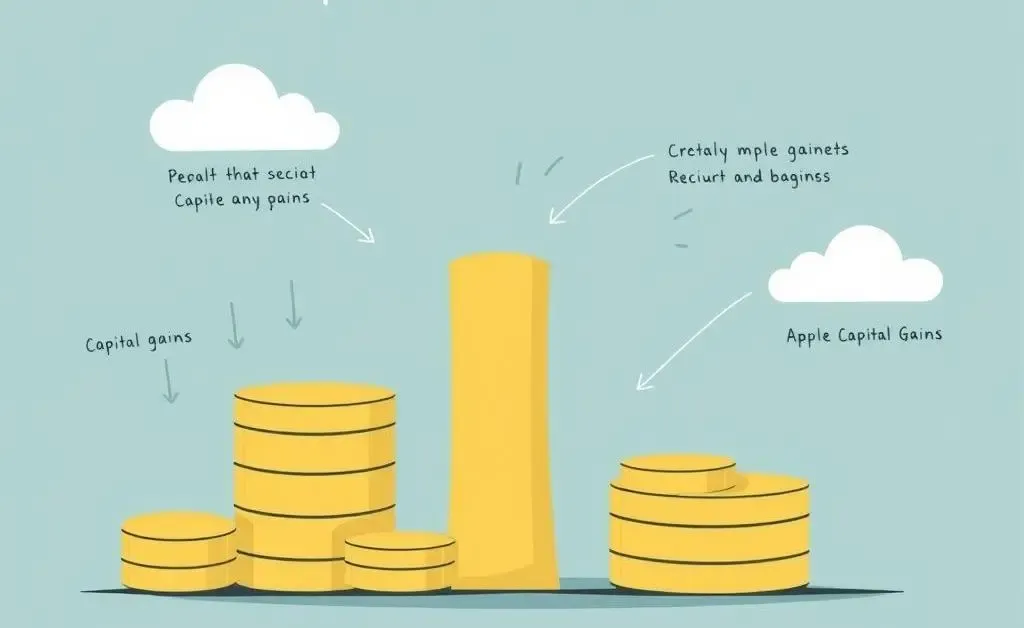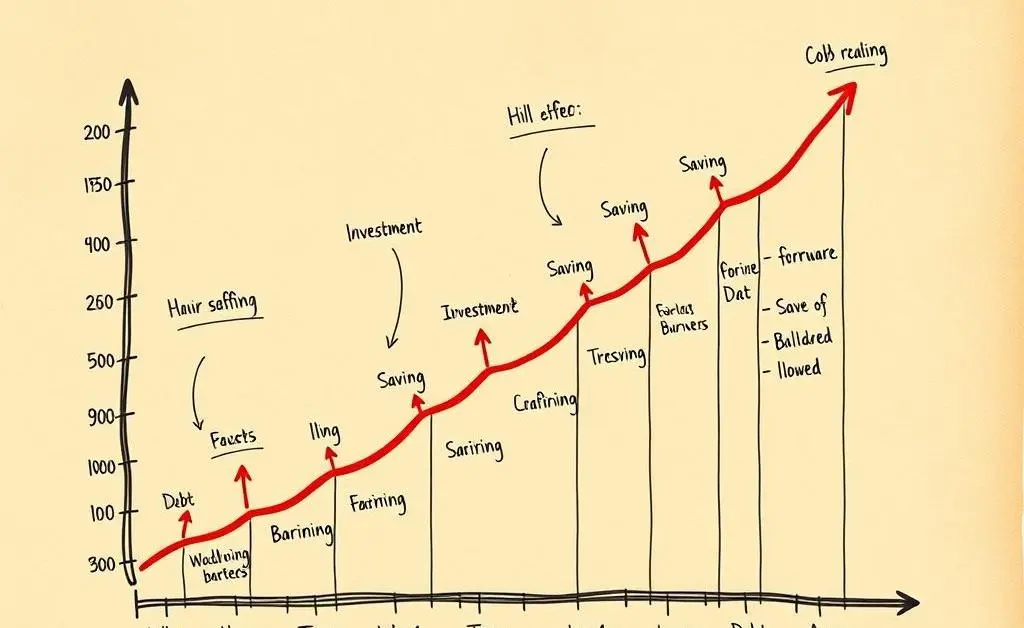Demystifying Capital Gains: A Friendly Guide to Financial Growth
Explore capital gains and grow confident in your personal finance journey.

Have you ever found yourself sipping tea, pondering the idea of investing, and then found the term “capital gains” floating around like an unfamiliar guest at a party? I’ve been there too, muddling through the baffling landscape of personal finance. But fear not, my friend! Let’s embark on a gentle exploration of capital gains and demystify this key concept that could be your ally in financial growth.
What Are Capital Gains?
Capital gains are the profits you earn from selling an investment, like stocks, bonds, or real estate, for more than you paid for them. Think of it as the fruit of your investment tree, ripening over time. The key here is realizing these gains — they only become a part of your net worth once you cash in by actually selling the asset.

Understanding Different Types of Capital Gains
Capital gains come in two flavors: short-term and long-term. Short-term capital gains apply to assets held for a year or less, often taxed at a higher rate. It’s like picking unripe fruit — quick, but perhaps not the sweetest deal. On the other hand, long-term gains result from holding onto your investments for over a year, generally reaping tax benefits similar to nurturing your tree until the harvest is bountiful.
Navigating Tax Implications
The tax landscape for capital gains can feel like a maze of roots and branches, but don’t let that deter you. Short-term gains are taxed as ordinary income—understanding your tax bracket helps here. Long-term gains, however, enjoy lower tax rates, making them a juicy opportunity for the patient investor.

Planning for taxes can make your financial future more predictable, like sipping a familiar cup of tea by a warm fire.
Strategies for Managing Your Capital Gains
Here are a few strategies that might make your capital gains journey feel more like a scenic hike rather than a daunting climb:
- Hold for the Long Term: Consider long-term investments to benefit from lower tax rates.
- Offset Gains with Losses: Utilize tax-loss harvesting to balance gains and losses within your investment portfolio.
- Stay Informed: Keep an eye on tax regulation changes to adapt your strategies effectively.

Closing Thoughts
Stepping into the world of capital gains is a bit like learning to navigate a new neighborhood. At first, it may seem full of winding paths, but with time and focus, you’ll unveil a community rich with opportunities to grow your financial garden. Take each step with curiosity and patience, and soon, the unfamiliar will become a source of empowerment and confidence.
So next time you’re having that cup of tea and financial musings drift in, remember: you’re equipped with the wisdom to embrace and navigate the world of capital gains.




